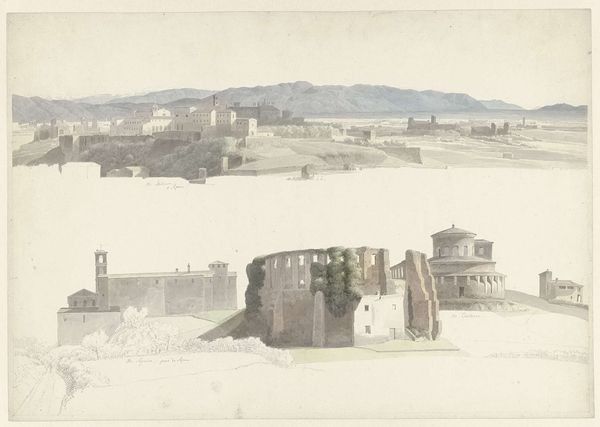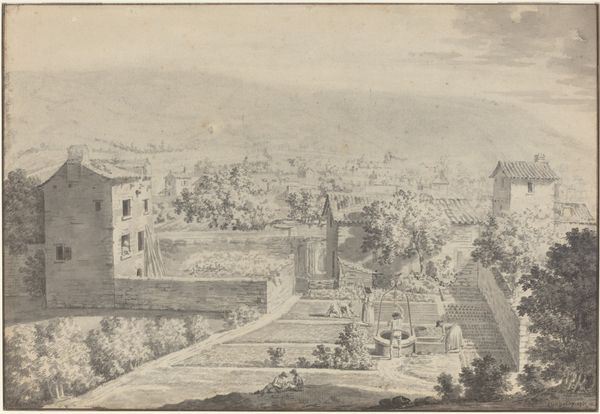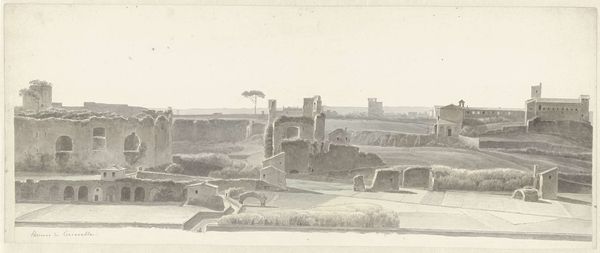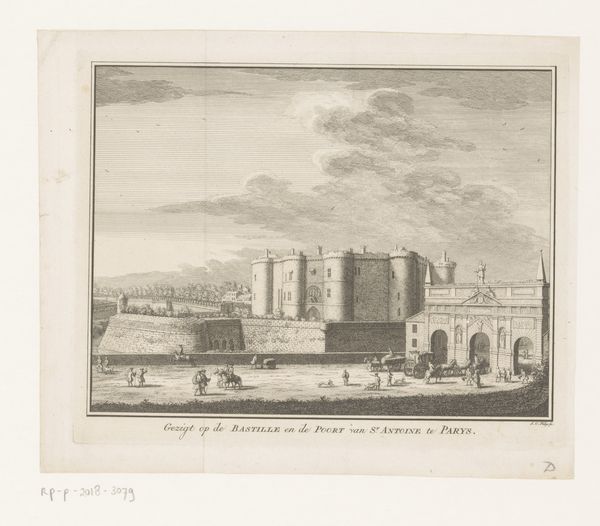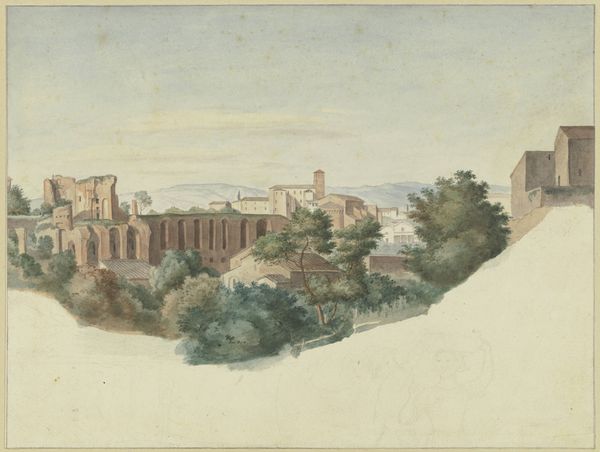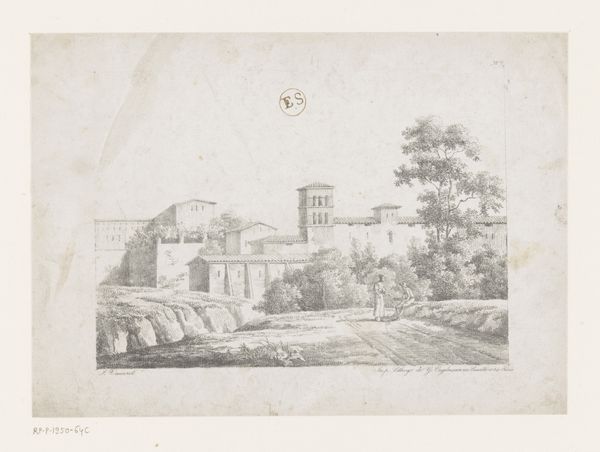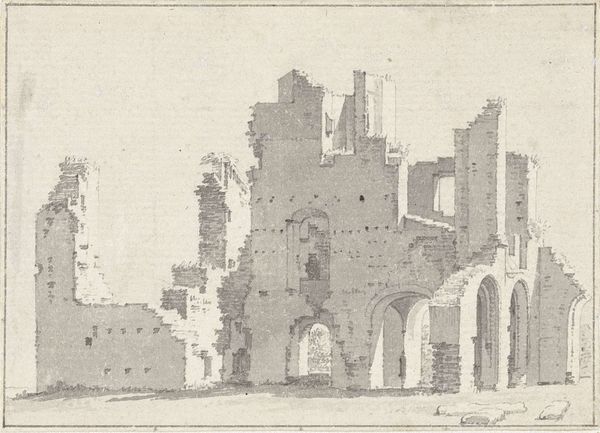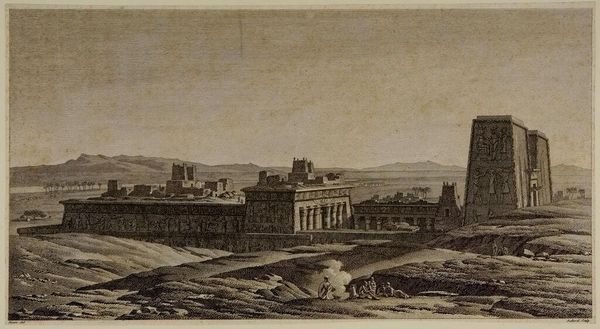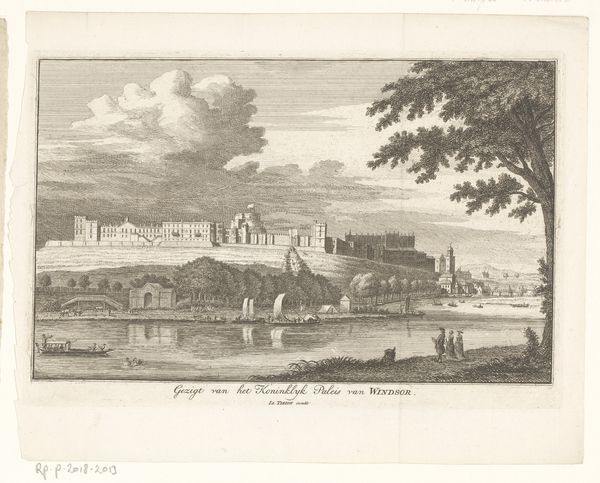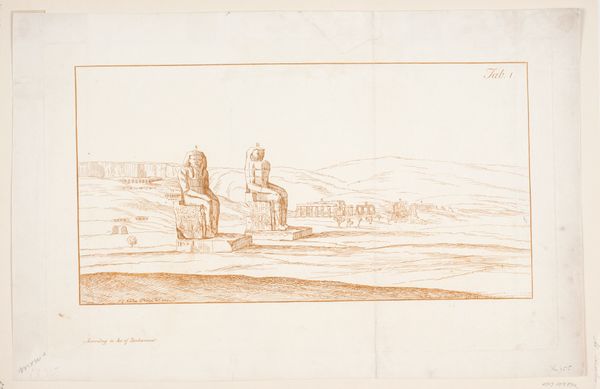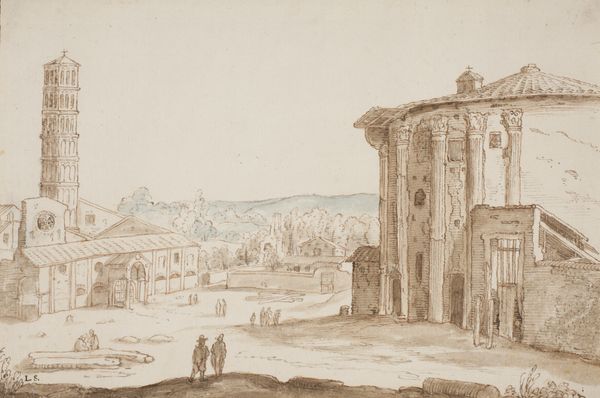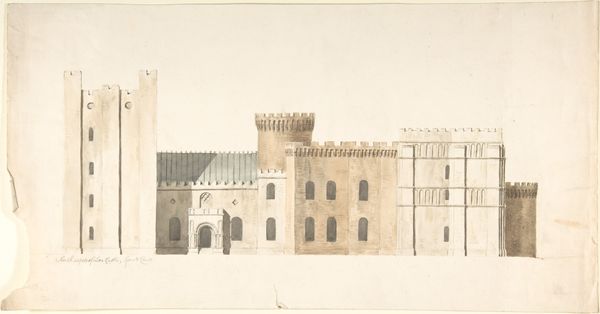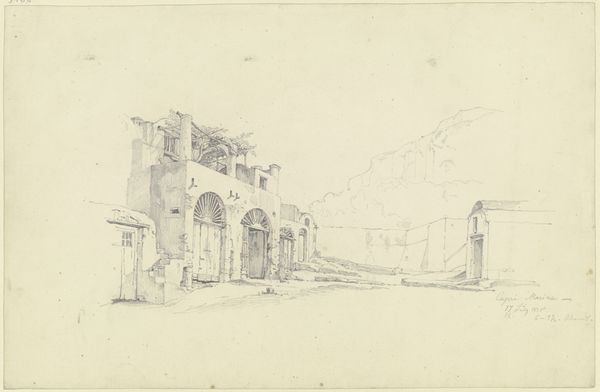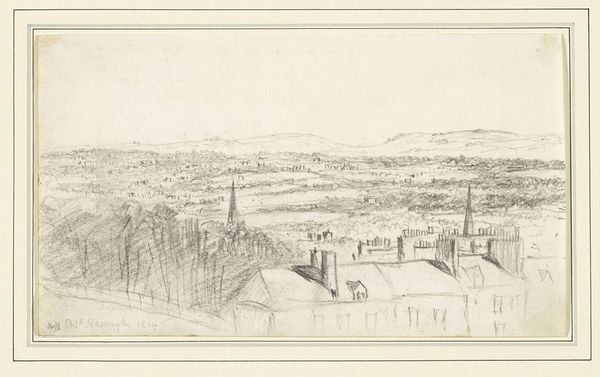
S. Giovanni e Paolo, the Villa Mattei and the Imperial Palaces c. 1809 - 1812
0:00
0:00
drawing, painting, watercolor, pencil, architecture
#
drawing
#
neoclacissism
#
aged paper
#
painting
#
pencil sketch
#
landscape
#
watercolor
#
classicism
#
pencil
#
architecture drawing
#
cityscape
#
architecture
Dimensions: height 218 mm, width 538 mm
Copyright: Rijks Museum: Open Domain
Josephus Augustus Knip rendered the S. Giovanni e Paolo, the Villa Mattei, and the Imperial Palaces with watercolor to capture the grandeur and decay of Rome. Notice the arches, a dominant motif, repeated in the architectural ruins, evoking ideas of triumph and power. The arch is more than just an architectural feature; it’s a symbol found throughout history, from Roman aqueducts to triumphal arches, representing dominion and connection. But here, they appear as ruins, stripped of their original glory. The motif carries a powerful psychological charge, echoing in different cultural contexts. Think of the arch in ancient Mesopotamian city gates, or the archways framing Renaissance paintings, each instance imbuing the symbol with new layers of meaning. The cyclical nature of history is mirrored in these recurring forms, a constant reminder of the passage of time. The presence of these remnants prompts a deep meditation on the transient nature of power. It touches something profound within us, acknowledging both the allure and the inevitable decay of human achievement.
Comments
rijksmuseum over 2 years ago
⋮
There is every reason to believe that the two city views in this drawing together form a single panorama. The bottom strip, depicting the ruins of the imperial palaces on the Palatine Hill in Rome from the southwest, would be the left half. The top strip, with the basilica and monastery of Santi Giovanni e Paolo and the Villa Mattei, constitutes the right half.
Join the conversation
Join millions of artists and users on Artera today and experience the ultimate creative platform.
